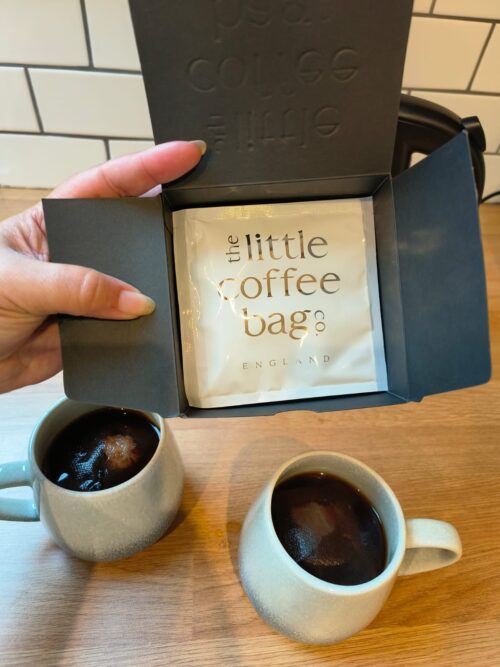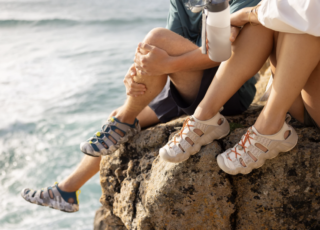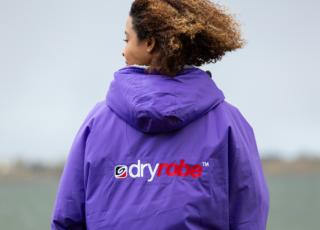TRAVEL | Antigua Receives Green Travel Traffic Light & Your Covid-19 Travel Questions Answered
🕒 6 minute read
What does the traffic light UK travel system really mean? Should you travel to amber countries? What Covid tests do you need to travel to an amber or green company? What do you need to consider if you want to travel specifically to Antigua & Barbuda? Find out the answers to these and other questions here.
DISCLAIMER: Advice correct at time of publishing. Please ensure you double-check advice, rules and requirements for yourself.

To get through the last 18 months I’ve kept a gratitude journal and have increased my focus on my physical and mental health to get through, meditating daily and discovering open water swimming, but being confined to the UK (no matter how much I love staycations and exploring closer to home) has felt stifling at times, leaving me in dire want of some adventure.
At Christmas, I was looking forward to my forthcoming trip, due to take place in January 2021. Just 4 days before my flight however, another UK-wide and international travel ban was introduced and the trip was put on hold, meaning a mad scramble to cancel hotels and flights.
Traffic Light System Introduced To the UK
Fast forward to June and with the ongoing uncertainty and the introduction of a traffic light travel system, despite very low infection rates in Antigua and Barbuda, initially, the country was put on the amber list, meaning travel was not advised but isn’t prohibited.
Having just recently got married and desperate for a honeymoon, I decided to give it another go and re-booked for early July, confident that in the next traffic light review due on 24th June 2021, the country would be moved to the green list.

I have since been double vaccinated and with Antigua and Barbuda now on the green list (as at 24/06/2021), I’ve re-booked our trip to Antigua for a week of glamping on the beach in Antigua, at Wild Lotus Glamping.
With travel arrangements and all necessary tests booked, I thought I’d share what I learned from making travel plans during a global pandemic.
Considerations When Traveling During A Pandemic
So, with a global pandemic still calling the shots, what’s it like making travel plans during the age of Covid-19? These are some of the questions you might be seeking answers to.

1. Will Your Travel Insurance Be Valid?
Of course, travel insurance is always a must, but I noticed that my usual annual cover had gone up by around £30, like for like. I shopped around of course but found prices significantly higher than my annual cover cost last year from every insurer I looked at.
If a country is on the amber list, your travel insurance could be invalid, so please do check first as this should be a serious consideration and makes sticking to green list countries far more sensible right now.
Many insurance companies take into account the official FCDO travel advice, however, so don’t automatically assume travel to an amber country means your insurance won’t be valid, but do check as every insurer is different and will have different clauses and exclusions. If in any doubt, give them a call to get clarification.
I’d strongly recommend ensuring you have travel insurance in place prior to making any travel bookings too. Also check out the small-print and booking terms and conditions relating to Covid-19 and use a credit card for added protection where possible.
2. What Tests Do You Need To Travel To Amber & Green Countries?
A PCR test is different to a standard Covid test. Those easy home-test lateral flow tests provided for free by the NHS that are now easily available here in the UK are not the same as a PCR test and are not suitable for travel purposes.
You can expect to pay anything from £120 to around £350 for a single PCR test
You can expect to pay anything from £120 to around £350 for a single PCR test and depending on where you’re flying to, there are strict rules as to how this can be administered and when it needs to be obtained.
For example, some countries require a PCR test that is taken no more than 72 hours before travel, others provide a more lenient 7-day timescale. Some countries don’t allow tests taken at home at all so be careful and check the requirements for the individual country you want to travel to.
For Antigua and Barbuda, as it stands, a PCR test is needed no more than 7 days before the flight date and it can’t be a home test. There are limited clinics in the UK offering a rapid turnaround, but these cost a few hundred pounds.
Please do not book through Well pharmacy. If you do, expect it to take at least 3 full working days for your results and we found the service shambolic. If you need your test within 72 hours, the Well service, which we were repeatedly assured would take a maximum of 48 hours actually takes far longer and can not be trusted.
We used their service paying £320 (£160 per person) for their green test package, booking on the date they advised us to in order to obtain results in time for our flight. The results actually arrived some 5 hours AFTER our flight departed.
An hour away from the airport still with no test results, we had to find a same-day rapid test provider at an additional cost of £500. We strongly advise against using Well pharmacy.
DON’T FORGET Even if you book a green or amber testing package, this typically doesn’t include the additional PCR test you’ll need to get in the country you are traveling to prior to flying home. This can often be the trickiest part, especially if you are traveling independently.
Individual hotel and holiday companies such as TUI are being much more helpful, providing clear advice and even discounted testing packages to holidaymakers, so for now, sticking to package deals could make more sense than making independent bookings.
3. What If The Status Of A Country Suddenly Changes?
Before booking anything check the gov.uk website and check the official travel advice for the country you want to visit, as well as checking out the FCDO travel advice, but remember that countries added to the green watchlist could technically be dropped back down to the amber list at any time, so there is still some risk attached.
It’s tough to stay on top of travel advice as it’s changing so frequently, but if you Google the country you want to visit + “travel restrictions” or + “travel entry requirements” you’ll be able to find up to date information, and check multiple sources too to ensure the information you have is correct.
If you are in a foreign country and the status suddenly changes, there’s usually a bit of warning, though there will be a mad scramble to get flights home, particularly if a country suddenly gets put on the red list.
Making sure you have a credit card with you should it be necessary to fund the cost of emergency flights of accommodation makes sense, and make sure you are checking the news and travel advice whilst you’re away so you’ll know about any impending changes as soon as they are announced.
All you can then do is use your best judgment to keep not only you and your family safe, but to protect those in the country you want to travel to. Even though quarantine at home might not be mandatory, it could make sense and taking a couple of rapid lateral flow tests away with you so you can test yourself throughout your stay could also make sense.

4. Will The Airport Be The Same?
Be aware that flying is likely to be different from usual with some reduced services in the airport and of course social distancing and the mandatory wearing of face masks in place. Restricted services mean that you might find that not all restaurants and shops are open, though we’re personally hoping that it means the flight itself won’t be too full which will make us feel less nervous about the flight.
Check what’s open before you fly and consider booking an airport lounge. Last year before a flight to France from Manchester Airport, I booked an airport lounge and found the experience much more pleasant than the usual airport experience.
5. Will Flights Be The Same?
This will differ from airline to airline, but as it stands, BA are currently offering only cold food on their flights, so don’t expect your normal in-flight meal even when flying long-haul.
I’m not really sure why this is, serving sandwiches that need to be kept chilled can’t really present more of a risk than serving the usual hot airline meals, but as it stands, food options are likely to be limited/different.
Consider too that you’ll have to wear a mask throughout the flight, so it’s worth making sure you have a couple of masks with you (If you’ve worn one for several hours on end you’ll know that they can end up a little damp from moisture as you breathe) and making sure they are comfortable to wear for extended periods.
One thing to add – when we flew back from Venice in September they insisted passengers had to wear a disposable mask, no reusable fabric ones allowed. Airport was selling them but probably at an inflated price
— Katy 🌦 (@katyish) December 14, 2020
A friend over on Twitter, helpfully pointed out that on a European flight in September, reusable fabric masks were not allowed, only the disposable kind, so that’s worth thinking about – I’ll certainly be taking some disposable ones away with me just in case!

6. Will I Have To Self Isolate?
Depending on where you’re flying to and where you fly back into the UK from and what the traffic light status is, you may need to self-isolate when you get home – this currently applies to amber and red countries, with one important difference, amber, you can self-isolate at home, red, you must self-isolate in a government-approved facility.
If you are already working from home and returning from an amber country, self-isolating at home is likely to be fairly straightforward to cope with, in which case simply plan ahead and order a grocery shop to arrive when you get home, but if you have children to get to school, a relative to look after or your job can’t be done from home, this should be a serious consideration.
If you are flying from a red country you will need to self-isolate in a government-approved facility which will cost you in the region of £1,600 per person, so flying to/from red countries really is best avoided unless absolutely necessary.
Find out more about the travel traffic light system and be aware too, that all UK arrivals will need to fill in a passenger locator form.
Personally, I’m not sure I’ll really relax until I’m on the plane, and even then I’ll be worrying about the authorities accepting the results of my PCR test and fit to fly certificate when I land…
Travel in these unpredictable times is certainly less straightforward and I’ve definitely found making travel plans more stressful (and costly) than usual, but I’m remaining pragmatic, hoping for the best, but prepared equally for the fact that any number of factors could change in an instant.
What’s your experience?
Have you traveled during the pandemic? What was your experience like? Did you encounter anything else I’ve not mentioned above? It would be great to hear from you in the comments below or on Facebook or Twitter!
DISCLOSURE | My trip to Antigua is part self-funded and I’m paying all travel expenses. Accommodation and retreat costs are being kindly covered by Wild Lotus Glamping. Advice changes constantly, so please ensure you check for yourself and do not solely rely on the information provided on this page.
Where to next?
- NEWS | UK Family Sends Sunshine from Antigua Glamping Site to Mark World Vitamin D Day
- TRAVEL | Discovering The Ultimate 5* Luxury Beach Holiday At The TRS Yucatan in Mexico
- TRAVEL | What To Pack For An Active Beach Holiday – Essential Tropical Packing List






















![CAMPING | Here’s How To Stay Warm In Your Tent – Warm Camping Tips [Updated 2024]](https://www.campingwithstyle.co.uk/wp-content/uploads/2024/02/shell0816_photorealistic_realistic_photo_of_the_inside_of_a_c_dd26c3c4-c779-4081-85b0-72e66a81b03b_1-320x230.png)

![GEAR | The Best Warm Sleeping Bags For Spring Camping Trips [Updated March 2024]](https://www.campingwithstyle.co.uk/wp-content/uploads/2024/02/10-best-warm-sleeping-bags-2024-320x230.png)




